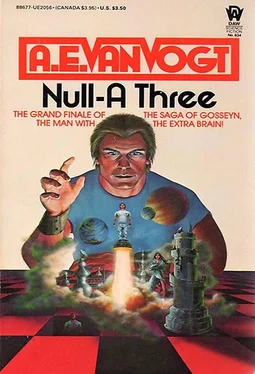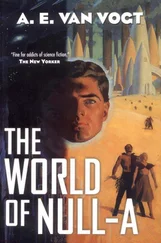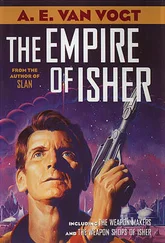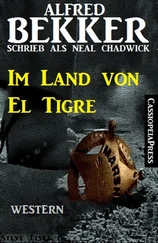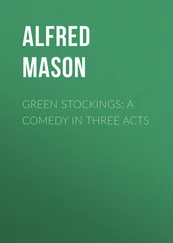Alfred Van Vogt - Null–A Three
Здесь есть возможность читать онлайн «Alfred Van Vogt - Null–A Three» весь текст электронной книги совершенно бесплатно (целиком полную версию без сокращений). В некоторых случаях можно слушать аудио, скачать через торрент в формате fb2 и присутствует краткое содержание. Жанр: Фантастика и фэнтези, на английском языке. Описание произведения, (предисловие) а так же отзывы посетителей доступны на портале библиотеки ЛибКат.
- Название:Null–A Three
- Автор:
- Жанр:
- Год:неизвестен
- ISBN:нет данных
- Рейтинг книги:3 / 5. Голосов: 1
-
Избранное:Добавить в избранное
- Отзывы:
-
Ваша оценка:
- 60
- 1
- 2
- 3
- 4
- 5
Null–A Three: краткое содержание, описание и аннотация
Предлагаем к чтению аннотацию, описание, краткое содержание или предисловие (зависит от того, что написал сам автор книги «Null–A Three»). Если вы не нашли необходимую информацию о книге — напишите в комментариях, мы постараемся отыскать её.
Null-A 3 is destined to become an instant classic — a mind boggling galaxy-spanning adventure!
Null–A Three — читать онлайн бесплатно полную книгу (весь текст) целиком
Ниже представлен текст книги, разбитый по страницам. Система сохранения места последней прочитанной страницы, позволяет с удобством читать онлайн бесплатно книгу «Null–A Three», без необходимости каждый раз заново искать на чём Вы остановились. Поставьте закладку, и сможете в любой момент перейти на страницу, на которой закончили чтение.
Интервал:
Закладка:
The Troog way seemed to anticipate that, after a conversation, friendly or unfriendly, if a human being had once tested a door to see if it would open, he would then test it again, without waiting for instructions.
The human way—the Gosseyn version at least—had been to await further instructions, once verbal contact was established. A courtesy approach was what he had intended.
The conclusion seemed to be: the enemy automatically expected aggressive—or, at very least, purposeful action—behavior from him.
Even as he had these thoughts, Gosseyn turned to the right, and walked along the wide, dimly lighted corridor. He could see a barrier about 150 feet ahead; and, presumably, that would be the moment of truth.
It turned out to be a door that wouldn’t open. Still following his new theory, Gosseyn turned back and walked rapidly in the opposite direction. The barrier that way was about 400 feet distant. And there was another door, yes. With the familiar looking mechanism. Two of them clicked, one after the other; and, when they did, the door swung open.
What he was looking at, then, was another corridor I at right angles to the one he had already traversed. Another decision to be made: he chose a right turn again. It was a wrong choice once more. But since, when he went back in the other direction; and that door opened on still another cross corridor, he had the opportunity of going left as his first decision. Went that way; and this time it was the wrong direction.
But that was his journey through more than a dozen silent corridors. At the end of each corridor a door either opened, or it didn’t. It was, in its fashion, a good test for discovering how much of the Leej-style predictor ability he had. His conclusion: he either had none, or very little. His choice was correct four times only; eleven times it was wrong. And in all those latter instances he had to retrace his steps, and then go into the distance of another empty hallway, silent except for the soft sound of his shoes on the soft floor surface.
Not once did he see a Troog. Empty, deserted, silent, huge spaceship—so it seemed; and solidly locked up against intruders, except for the doors that opened, and presumably guided him toward where someone wanted him to go.
There were some diversions. Along each side of each corridor at intervals, not evenly spaced, were wall shapes that—he assumed—were doors that led to rooms like the laboratory from which he had started on this tire-some journey.
At first, he passed them by, but presently he paused at each one and tried to work the mechanism.
They were all locked, and stayed locked.
After a while he had a thought: “… I suppose this could be a way of exhausting me physically—”
And, still, he could not persuade himself to test whether or not he could escape to some 20-decimal location.
The continuing ordeal brought another, and unexpected response: he felt less willing to help. As the minutes and the miles—it seemed like—went by, a thalamic reaction began. He had started along that first corridor, accepting that when he was finally able to confront his captors, he would do his best to help them to get back to their own galaxy. Now, the memory came that General Semantics rejected most automatic acceptances.
True, it seemed obvious that the aliens were entitled to return where they had come from. But it was not necessarily true. And so it was interesting that by way of exhaustion and irritation had come the realization that perhaps he had better re-examine his automatic decision.
Fortunately, he recognized those negative speculations for what they were; and so his irritation never grew into the huge rage that might have festered inside an old-style he-man.
The end of that long harassment came suddenly. It was as he glanced along what could have been another meaningless corridor, that he saw a splash of bright light about 250 feet to his left.
The appearance was of a doorway… open, not closed. And, in fact, after he had walked rapidly toward it, and then slowed, edged forward, and stood there carefully peering in, what he saw was a duplicate of the earlier private restaurant room, except—instead of the recognizable human beings—sitting around the table in that dimly lit room were about a dozen Troogs.
It took a little while, then. But presently Gosseyn realized that they were aware of him. His hesitation ended. And, remembering they expected aggressiveness, he walked in. He had already in that first look noticed that there was an unoccupied place at the table.
It was on the far side of the table. And he went around behind a half-dozen Troogs, and over to the empty place. What was different from that earlier restaurant meeting, and in its fashion, more respectful, instead of continuing to stand as if he were the important person—he sat down.
But his faraway thought was: how close to the end can you be?… And how fantastic that they would have a dinner meeting like this!
CHAPTER 24
Think positive!—Gosseyn admonished himself.
Despite the negative feelings that still lingered from the long walk through empty corridors, the truth was he was here to solve everybody’s problem… if they would let him.
No one said anything; but the room was dark enough in that dim-lit way of many restaurants, so that diners could be aloof from each other. Thus, he had his chance to glance around at the strange beings, who had been so busy causing trouble ever since their arrival.
The positive approach suffered an immediate diminishment. They looked awful. It was the same reaction as when he had had his initial glimpse that time in the laboratory.
Gosseyn fought a silent battle against that automatic human tendency to apply human standards to appearance. Beauty—he recalled the ancient adage—is in the eye of the beholder.
After all, there was human-ness. Except that their faces were almost round, and purplish in color. And that the part of the neck that he could see was almost skeleton thin; but there seemed to be some fairly large bodies below. All arrayed in uniforms that glinted as if they were constructed of bits of metal.
The head, like the face, was round. And almost bald. There was an ugly something that resembled hair: a cluster of what seemed to be bristles poked up from the top center.
But that face: a small, almost lipless mouth, a strange little nose, and above, dominating everything, were two large, round eyes, with black pupils, but without eyebrows. There did seem to be several folds in the skin immediately above and below. His impression: the eyes could be closed.
Before he could look further, a door to his right opened; and five Troogs and one human being entered, carrying platters. The human being—a youth—came around to Gosseyn, and set in front of him what looked like an omelette, and the Troog waiters supplied all eleven of his tablemates with a dark glop of some kind.
As the waiters started to leave, for just one moment Gosseyn’s gaze and the human youth’s eyes met. What he saw was a haunted expression: darkness of soul, hopelessness. They were gone out of the door, all six of them; but the memory remained.
Everybody, including Gosseyn, ate. There was the scraping sound of his fork, and of the slightly different, almost knife-thin utensils of his hosts… for that smaller mouth.
Since they could have a human being aboard, presumably they could also have genuine eggs; and that’s what the omelette tasted like: the product of a real earth chicken.
What puzzled him was that he seemed to be hungry. Did the body experience more time in these journeys than was outwardly apparent?
Something to think about later.
Gosseyn Three put down his fork, and leaned back.
Sitting there, he saw that his dinner companions were, each separately, taking the final bites that completed the intake of whatever it was they had been eating. And they, also, thereupon leaned back in their chairs. There they were, then: all of them in that dimly lit duplicate of an earth restaurant. And his thought went back to the fact that they had made the effort to get him earth food. Somehow, the deeds of those millions of chickens back there… out there… had been observed: still surviving, although most of their eggs had been stolen from them day after day from earliest times.
Читать дальшеИнтервал:
Закладка:
Похожие книги на «Null–A Three»
Представляем Вашему вниманию похожие книги на «Null–A Three» списком для выбора. Мы отобрали схожую по названию и смыслу литературу в надежде предоставить читателям больше вариантов отыскать новые, интересные, ещё непрочитанные произведения.
Обсуждение, отзывы о книге «Null–A Three» и просто собственные мнения читателей. Оставьте ваши комментарии, напишите, что Вы думаете о произведении, его смысле или главных героях. Укажите что конкретно понравилось, а что нет, и почему Вы так считаете.
